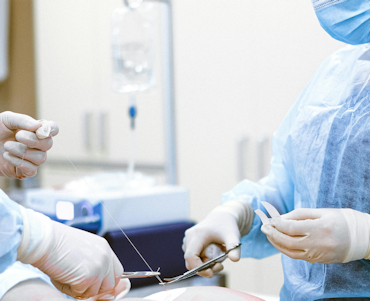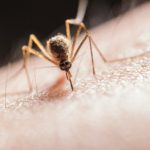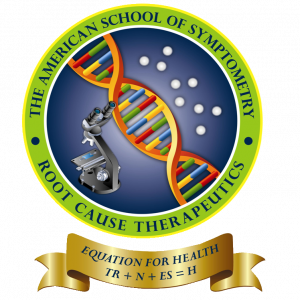
SURGERY, THE PROS AND CONS
Dr. Maxwell Nartey
Professor of Symptometry
American School of Symptometry, NFP
Many surgeries are necessary, but what happens after surgery will now be explained.
Slicing the skin causes many capillaries to collapse, as sludge interferes with the nerve’s effort to grow into its shaft. Capillary collapse and the nerves’ efforts to grow into their shafts cause poor granulation and deep scarring.
A light scar indicates that granulation occurred smoothly. A deep scar indicates the contrary.
Surgeons do not ionize sludge and reverse capillary collapse, causing a deep scar to form and serious circulatory problems to occur after surgery.
Every woman who underwent C-section eventually developed urinary incontinence. Also, people who underwent wrist surgery continue to experience tingling in their fingers and wrist pain, and those who underwent leg surgery continue to experience leg pain, heaviness, or numbness. Many must walk with a cane or a walker for support.
Many sportsmen and women who underwent joint surgery can confirm these observations.
I underwent wrist surgery and leg surgery, but I don’t suffer from post-surgical complications because I ionized sludge and calcification and also reversed capillary collapse to facilitate excellent capillary circulation to my nerves, proving that Symptometry does what surgeons cannot do.
The limitations of surgery
Surgery sounds good, but surgeons have some limitations that the public is not aware of.
After surgery, stitching is done, and the person is sent home to recover.
In a few cases, the removal of stitches is scheduled, and the stitches are removed. What else does the surgeon do? Nothing. Their job is done, but the nightmares of the person who underwent surgery will begin.
Surgeons assume that natural healing will occur after surgery. The truth is that people with extremely filthy blood full of poisons, clots, fat globules, sludge, clutter, recombinants, etc., will not heal as quickly and smoothly as people who have less garbage in their blood.
Also, granulation must occur after surgery, and the nerves must find their shafts and grow into them. Surgeons are not concerned about granulation, reversing capillary collapse, or nerves growing into their shafts. They perform surgery, evaluate their work after surgery, and are done.
For granulation to occur smoothly, the bonds of the clots, poisons, clutter, alkaloids, acids, etc., in the person’s blood must be broken so that oxygenated blood can provide the cells with what they need. Symptometry has these bond breakers.
I discussed granulation on page 139 of my book titled Symptometry and Symptometric Science At A Glance.
Unless excellent capillary circulation is restored after surgery, something surgeons cannot do, but Symptometry does with great success, post-surgical complications such as numbness, pain, swelling, tingling, itching, and the disruption of regular organ functions after surgery will be inevitable.
Another point that should be emphasized is that surgery is not always the solution to pain and discomfort. How clean is a person’s blood, and how good is their capillary circulation in their knees, hips, shoulder, elbow, fingers, toes, etc.?
Surgery does not clean a person’s blood to make it flow faster and accelerate granulation. It leaves blood as it is with all its filth. Aspirin TM or a blood thinner can be prescribed after the surgery, but a blood thinner is not a bond breaker. It simply presses blood impurities against the inner wall of the blood vessels to facilitate circulation.
After a few hours, the blood impurities that were pushed against the inner wall will return to impede circulation. Therefore, Aspirin TM is a temporary solution to ease circulation.
The best long-term solution is to break the bonds of the anesthetic drugs, alkaloids, poisons, acids, etc., that are in the person’s blood so that few blood impurities allow blood to flow faster. Symptometry uses bond breakers to allow blood to flow faster without side effects.
Knee surgery and hip surgery have never resolved the poor capillary circulation problem in the person’s hips and knees. The pain and discomfort will linger, limiting mobility. Here is more about capillary circulation.
Nerves, cartilage, tendons, and ligaments receive their nutrients and resources through capillaries. If the capillaries are occluded or the capillary filtration force is extremely weak, the knee or hip cartilage won’t receive somatomedin from the liver to replace old cartilage, causing the cartilage to continue to deteriorate. This is the truth about cartilage that has never been shared.
People are free to pursue surgery, but those who prefer the natural and scientific route have every right to know where this natural and scientific route is and the institution that provides it. The institution is Symptometry.
© Copyright 2024, The American School of Symptometry, NFP. No part of this publication may be reproduced or transmitted in any form or by any means, electronic or mechanical, including photocopying, recording, or by any information storage and retrieval system without the written permission of The American School of Symptometry, NFP. Library of Congress copyright number Txu 1-621-370, Washington D.C.


 Previous Post
Previous Post Next Post
Next Post